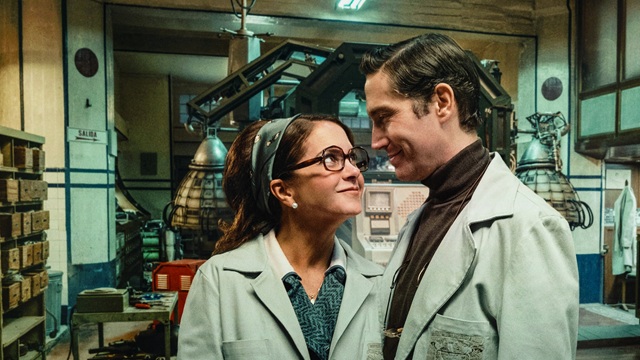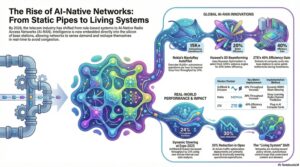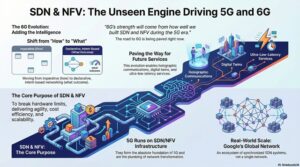Over the past year and a half, I’ve found myself drawn to books that talk about the incredible transformation we’ve seen in technology—especially around AI. Some days, it feels like we’re moving faster than we can fully grasp. From being a fascinating research subject to becoming the core of everyday tools, AI has quietly (and sometimes loudly) become part of almost everything—robotics, quantum computing, even art.
And today, unexpectedly, it was a movie—not a book or article—that made me pause and reflect.
I watched Our Times, a Mexican film that just dropped on Netflix in India. It’s a story about a couple of physicists in 1966—Nora and Héctor—who build a time machine and land in 2025. What starts as a sci-fi adventure quickly turns into something much deeper. They begin to notice not just how technology has changed—but how people, especially women, are treated very differently in the future.
I couldn’t help but draw parallels between the film and the real tech evolution we’re all experiencing. The way AI is being woven into our lives today is not just changing what we do, it’s changing how we think, how we connect with each other, and even how we see ourselves.
What the Movie Got Right—And Why It Feels So Relevant
The Role of Women in Science
In 1966, Nora isn’t allowed to present her own research. Her husband takes the stage while she stands in the background. Sadly, that wasn’t fiction. Women in science and technology have had to fight long and hard for recognition—and many still are.
But fast-forward to 2025 in the film, and Nora is thriving: publishing papers, teaching, being acknowledged for her brilliance. That’s the world we’re striving to build today. And while we’re not there yet, we’ve made important progress.
Academia, Then and Now
Seeing Nora respected in modern academia reminded me of how far we’ve come in terms of inclusion. Today, more women and underrepresented voices are shaping the future of STEM. It’s a reminder that diversity in innovation isn’t just nice to have—it’s necessary.
The Shock of the New
Imagine being from the 1960s and suddenly seeing smartphones, electric cars, or even menstrual cups. The couple’s reactions in the movie are funny, but they make a good point. Technology can be disorienting—but also incredibly empowering. We adapt, even when it feels overwhelming. Just like we’re now adapting to AI reshaping how we learn, shop, create, and communicate.
Credit Where It’s Due
The film also touches on something that really hits home: who gets credit for groundbreaking work? Nora and Héctor’s relationship is tested when ego and recognition come into play. It’s not just a fictional drama—it reflects real issues we still deal with in science and tech. Think about Rosalind Franklin’s contributions to DNA research that were long overlooked.
Now, with AI co-creating music, art, and even research papers, we’re entering a new era where questions about credit and ethics will only get more complicated.
Fiction with a Purpose
Sure, the movie includes some fun fictional science—like using transducers from the Soviet Union to power time travel—but that’s what makes science fiction such a powerful mirror. It bends the rules just enough to help us see our own world more clearly.
Watching Our Times made me think about the kind of future we’re building—not just with our tools and tech, but with our values.
So, What Comes Next?
As someone who loves tracking where technology is going, I left the movie with more questions than answers. And maybe that’s a good thing.
Here are a few I’d love to leave with you:
- How will AI continue to shape not just our work, but our relationships and daily lives?
- As AI becomes a creative partner, how do we define authorship and ownership?
- Are we ready for the emotional, social, and even physical changes that come with AI-driven lifestyles?
- What kind of world do we want to create for the next generation—and what are we doing today to get there?
Let’s keep the conversation going. Because like the movie reminded me—our time isn’t just something we live in. It’s something we create.






Be First to Comment